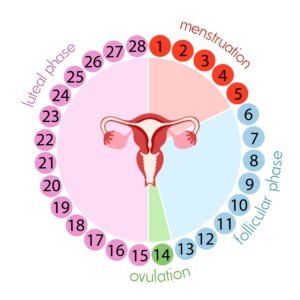Understanding Ovulation: How to Maximize Fertility
When you’re ready to grow your family, there’s one part of your body that plays a starring role: your ovulation cycle. While it might sound like a basic biology class flashback, understanding ovulation can actually make a huge difference in your fertility journey. More than just knowing when your period comes and goes, it’s about tuning in to the rhythm of your body and learning how to maximize fertility when it counts the most.
If you’re looking to increase your chances of conception, you’re not alone—and you’re in the right place. Let’s break down what ovulation is, how it affects fertility, and what you can do to make the most of every cycle.
What Is Ovulation?
Ovulation is that magical moment in your menstrual cycle when an ovary releases an egg. Sounds simple, right? But there’s a lot going on behind the scenes.
This egg travels down the fallopian tube, where it can meet up with sperm and potentially begin the process of creating a new life. But here’s the catch: the egg only sticks around for about 12 to 24 hours. That means timing is everything.
But don’t panic—sperm are a little more patient. They can live inside the reproductive tract for up to five days. So, even if you have sex a few days before ovulation, those sperm could still be there when the egg arrives. That overlap of viability is what creates your “fertile window.”
To really understand how to maximize fertility, you need to get familiar with this window and what your body is doing during those crucial days.

How to Maximize Fertility: Know Your Cycle
The first step in boosting your chances of getting pregnant? Get to know your menstrual cycle like the back of your hand.
Track Your Period
Start by tracking the first day of your period each month. Over time, you’ll get a clearer picture of how long your cycles are and how consistent they are. Most people ovulate about 14 days before their next period starts, but this can vary depending on the length and regularity of your cycle.
Cycle-tracking apps can be super helpful, but a good old-fashioned calendar works too.
Monitor Ovulation Signs
Your body often gives you subtle signs that ovulation is approaching. Here are a few to look out for:
– Cervical mucus becomes clear, stretchy, and egg white-like.
– Basal body temperature increases slightly after ovulation.
– Mild pelvic pain or cramping (called Mittelschmerz).
– Heightened libido—your body may naturally increase your desire to have sex.
– Breast tenderness or bloating.
By keeping track of these symptoms, you can become more aware of your fertile window and take advantage of it.
Use Ovulation Predictor Kits (OPKs)
If guessing and tracking aren’t your thing, ovulation tests are another great option. These kits detect the surge of luteinizing hormone (LH) that happens just before ovulation. A positive result means you’re about to ovulate in the next 24–36 hours—aka, now is the time to get busy.
Understanding these signs and tools gives you more control and insight into how to maximize fertility in your unique cycle.
The Fertile Window: Timing It Right
Let’s get into some real numbers. The “fertile window” refers to the six-day period when you’re most likely to get pregnant. That includes the five days leading up to ovulation and the day of ovulation itself.
Having sex during this time increases your odds significantly, especially if you time it in the few days right before ovulation.
Should You Have Sex Every Day?
There’s a lot of debate on this. Some studies suggest that having sex every day during the fertile window slightly increases the chances of conception. Others say every other day works just as well and can reduce pressure and stress.
Whatever you choose, consistency during those key days is what counts. If you’re wondering how to maximize fertility, it’s not just about frequency—it’s about timing with intention.
What Can Impact Ovulation?
Even if you’re tracking and timing everything perfectly, ovulation isn’t always predictable. Several factors can throw it off or prevent it from happening altogether:
1. Stress
High levels of stress can interfere with your hormones and delay or even prevent ovulation. That’s why finding ways to unwind—like yoga, meditation, journaling, or therapy—can be a powerful part of your fertility plan.

2. Weight and Nutrition
Being significantly underweight or overweight can affect ovulation. Focus on nourishing your body with balanced meals that include complex carbs, healthy fats, and lean proteins. Consider working with a dietitian if you’re not sure where to start.
3. Medical Conditions
Polycystic ovary syndrome (PCOS), thyroid issues, or other hormonal imbalances can disrupt your cycle. If your periods are irregular or you’re unsure if you’re ovulating, it’s a good idea to check in with your doctor.
4. Age
Fertility naturally declines with age, especially after 35. While you can absolutely still conceive in your 30s and 40s, being aware of your ovulation and fertility window becomes even more crucial during these years.
Recognizing and addressing these factors is another smart move when you’re focused on how to maximize fertility.
Lifestyle Tips for Boosting Fertility
Alright, let’s talk about the stuff you can control—your daily habits. Even small lifestyle changes can have a big impact on your reproductive health.
1. Eat Fertility-Friendly Foods
Incorporate foods rich in antioxidants, folate, zinc, iron, and omega-3 fatty acids. Think leafy greens, berries, salmon, nuts, and legumes. Hydration matters too, so drink plenty of water.

2. Exercise in Moderation
Too much or too little exercise can mess with ovulation. Aim for moderate activity like walking, swimming, or light cardio 3–5 days a week.
3. Avoid Smoking and Limit Alcohol
Both smoking and excessive alcohol intake have been linked to lower fertility. Quitting (or at least cutting back) can make a real difference.
4. Get Plenty of Sleep
Poor sleep can impact hormones. Try to get at least 7–8 hours of quality sleep each night to keep your cycle on track.
5. Manage Your Mental Health
Fertility struggles can take a toll on your emotional well-being. Don’t hesitate to talk to a therapist, support group, or trusted friend. You’re not alone in this.
All of these habits can support your overall reproductive health and give you the best shot at success when you’re figuring out how to maximize fertility naturally.
When to See a Fertility Specialist
Sometimes, even with perfect timing and healthy habits, things don’t go as planned. If you’ve been trying for:
– 12 months or more (if you’re under 35), or
– 6 months or more (if you’re over 35),
It might be time to talk to a fertility specialist. They can run tests to determine if there’s a specific issue that needs to be addressed, such as ovulation problems, egg quality, or male factor infertility.

Don’t Forget Your Partner’s Role
Fertility isn’t just about ovulation. Male reproductive health is just as important. Encourage your partner to maintain a healthy lifestyle, avoid excessive heat exposure (like hot tubs or laptops on laps), and get checked if conception is taking longer than expected.
Boosting sperm health goes hand-in-hand with understanding how to maximize fertility as a couple.
Embracing the Process
Trying to conceive can be emotional—there are ups, downs, and moments where it feels like everything is out of your hands. Learning about your ovulation and what affects it puts some of that power back into your hands.
It’s not about becoming obsessed with tracking every single sign, but rather learning how to work with your body instead of against it. The more you know, the more confident and empowered you’ll feel on this journey.
Final Thoughts: Your Fertility Journey, Your Way
Understanding ovulation and how to maximize fertility doesn’t mean everything will be perfect or easy. But it does mean you’re showing up for yourself and taking an active role in your reproductive health. Every cycle is a new opportunity. Whether you’re just starting to learn about your body or you’ve been trying for a while, you’re already doing something incredible by being informed and proactive.


